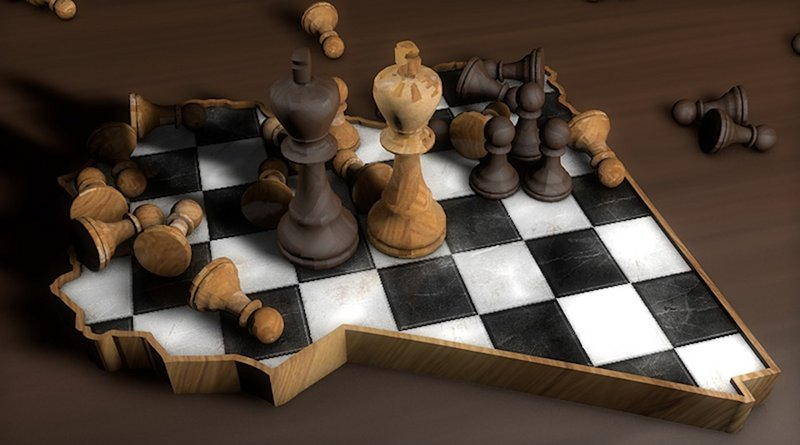At a conclave convened in Cairo by the Arab League last month, Libya’s three principal leaders jointly agreed on the “necessity” of forming a new unified government that would supervise the long-delayed national elections and provide a modicum of unity to a country that has been deeply divided for more than 10 years and destabilized by armed activity by largely independent military factions. The three leaders recognized that Libyans were anxious to have elections and agreed to set up a technical committee to “look into controversial points.”
These pious statements have little relation to reality. Hardly any Libyan believes that these august personalities have any intention of conducting elections that would sweep them out of the positions that at least two of them have enjoyed — without any legal basis — for a decade. Reflecting the country’s bizarre politics, on March 31, the residence of Prime Minister Abdul Hamid Dbeibah was attacked by unknown gunmen with rocket-propelled grenades, though no one was injured.
Libya has been cursed with binaries. It has two administrations, the House of Representatives in Tobruk and the Government of National Accord in Tripoli, with Tobruk exercising authority in the east and south and Tripoli dominant in the northwest. It also has two armed forces, the Libyan National Army, headed by self-styled Field Marshal Khalifa Haftar, nominally under the House of Representatives, and several militant groups under the Government of National Accord.
Each administration is backed by separate international coalitions: Egypt, the UAE, France and Russia support Tobruk, while Turkiye and Qatar back Tripoli. In February 2021, the Government of National Accord was replaced by the Government of National Unity under Prime Minister Abdul Hamid Dbeibah in an interim arrangement until national elections in December that year.
However, the election commission canceled the electoral exercise on technical, judicial and security grounds. The House of Representatives then demanded that Dbeibah step down and even appointed his successor. Dbeibah refused to give up his position and he remains prime minister. Not surprisingly, Dbeibah and Haftar, who exercise effective authority in the country, did not attend the Cairo conference.
There is no agreement among Libyan political factions about various aspects of the elections, such as the constitutional mandate for the electoral process, the authority to conduct the elections, the demarcation of constituencies, the eligibility criteria for the candidates and several other related matters. Soon after the Cairo meeting, Haftar pointed out that the political process had been provided more opportunities than necessary and that he was ready to “issue bold decisions and strict orders” to uphold the interests of the Libyan people — an obvious threat of military intervention.
The status quo has enabled political leaders to stay in power and amass extraordinary wealth, even as a third of Libya’s people live below the poverty line. Billions of dollars of oil revenues are unaccounted for, while the National Oil Corporation estimates that up to a third of petroleum and diesel provided by the state is smuggled. A former senior UN official has referred to this as “redistributive kleptocracy.”
Political divisions have also placed Libya at the center of regional migration and human trafficking. More than 700,000 migrants from sub-Saharan Africa have come to Libya en route to Europe by sea and 2,250 of them drowned in the Mediterranean last year. Hundreds of others detained in Libya have experienced extortion and sexual abuse and some have committed suicide.
In recent years, domestic political affiliations and alignments among external players have been going through important changes. On the domestic scene, the divide between Dbeibah and Haftar is gradually being bridged, largely due to close relations between the younger members of the two families, who have benefited from lucrative deals these ties have thrown up. Their ties are being referred to as a “corruption pact.”
Among external players, Turkiye’s engagements with the UAE, Egypt and Russia have improved its relations with the House of Representatives and Haftar. Turkiye and Russia are also working together to ensure they pursue their interests in Libya without conflict. Long associated with the administration in Tripoli, Turkiye has a “permanent presence” at Al-Watiya airbase, near Zintan, and the naval base at Misrata and is also associated with some militant factions in Tripoli.
Libya’s importance for Russia lies in its location on the Mediterranean and the borders it shares with six African states — Egypt, Algeria and Tunisia in North Africa and Sudan, Chad and Niger in the Sahel. Russia’s interests are secured by units of the Wagner Group, now referred to as the “Expeditionary Corps,” who maintain three airbases in Libya: one in the oil basin of Sirte and two in the interior, which provide Russia with access to the sub-Saharan region.
The US closed its embassy in Libya after its diplomatic mission in Benghazi was attacked by militants in 2012 and the ambassador was killed. However, the expanding Russian presence in NATO’s southern flank and across the Sahel has compelled the US to consider the reopening of its embassy to promote deeper engagement with Libyan groups.
Sadly, none of these changes address Libya’s political malaise. The country’s politicians continue to sacrifice its interests at the altar of personal avarice, thus ensuring that their nation remains broken and its people denied participation in national affairs and a greater share of the national wealth. A different approach would require a level of leadership and statesmanship that has not been apparent in the country for several years.

